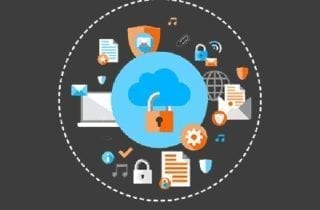In this edWebinar, you’ll see examples of how Chromebooks, G Suite for Education apps, and Gaggle, can keep students secure in the context of privacy, data, digital monitoring, and citizenship.
Districts are looking for ways to create cybersecurity training programs. Learn about best practices for teaching and learning cybersecurity skills.
During this edWebinar three superintendents share their perspectives and experiences in dealing with the multiple issues that contribute to the complexity of managing and assuring cyber security in a K-12 learning environment.
This edWebinar will cover guidelines for ensuring data privacy in any school system’s use of technology and how to make student data privacy a district-wide priority.
In a 2018 survey, the majority of school districts either have 1:1 as a current goal or have already achieved it. Along with a 1:1 goal, comes the deluge of edtech tools, software, and applications into classrooms. School districts are struggling with the fact that 70% of purchased licenses for edtech programs don’t get used at all within the school year and only 10% of teachers know how often students should use edtech programs to drive learning outcomes. In a recent edWeb.net edWebinar, Jena Draper, Founder and General Manager of CatchOn; Mike Schwab, Education Team at Google; and Suzy Brooks, Instructional Technology Director for Mashpee Public Schools, MA, point out that in order to combat this deluge of technology, it is imperative that school districts address the tech usage data that impacts and drive success in classrooms. While it is believed that the barrier to district leaders and classroom teachers using more data is that they don’t have time to look at it, 33% of districts and teachers say the real challenge is that information is in too many places for them to access.
In this edWebinar, join Suzy Brooks, Mashpee’s Director of Instructional Technology, Michael Schwab from Google’s Education Team, and Jena Draper from CatchOn, for a discussion about the power of data analytics.
Tactical student data privacy questions like “What can I do right now?” should be asked by all CIO’s, teachers, administrators and policymakers in this changing landscape of data access, student privacy and interoperability. In a recent edWebinar, Dr. Larry Fruth, Executive Director and CEO of the Access 4 Learning (A4L) Community, and Jena Draper, Founder and General Manager at CatchOn, discussed head on the challenges school districts face with data access and student privacy. Dr. Fruth suggests that school districts hit the ground running by adding privacy components and security before it becomes a “what should I do right now?” situation. Draper adds to this suggestion by asserting that school districts need to look at data access from all angles, from the outer layer of the infrastructure to the rogue apps used in classrooms, to create a sound data access and student data privacy plans.
In this edWebinar, discover some easy-to-implement student data privacy and monitoring best practices, including steps to better safeguard your data.
Of course cyber security is necessary in education. Schools have valuable information to protect for both students and employees. However, as financial and physical security issues arise, cyber security can fall down the list. As Ann McMullan, Project Director, CoSN Empowered Superintendents Program reminded attendees at a recent edWebinar, cyber attacks are increasing in K-12… read more →
When Congress passed FERPA (The Family Educational Rights and Privacy Act) in 1974, school and district leaders could rely on once-a-year training and reviews to make sure they remained in compliance. Now, when educators could potentially add a new app with a few mouse clicks, managing student data privacy is a never-ending task. In the edWebinar “Student Data Privacy: A Priority and Essential Commitment,” presenters Dr. Charles Dumais, Superintendent and Executive Director, Cooperative Educational Services, Trumbull, CT; Dr. Quinn Kellis, Superintendent Dysart Unified School District, Surprise, AZ; and Linnette Attai, Project Director, CoSN Privacy Initiative and Trusted Learning Environment Program, explained CoSN’s Protecting Privacy in Connected Learning initiative and superintendents’ essential role in directing their districts’ efforts. Discussing CoSN’s Five Critical Guidelines for Ensuring Data Privacy in Your Use of Technology, the speakers told attendees that when it comes to data privacy, the word “done” isn’t in their vocabulary.









